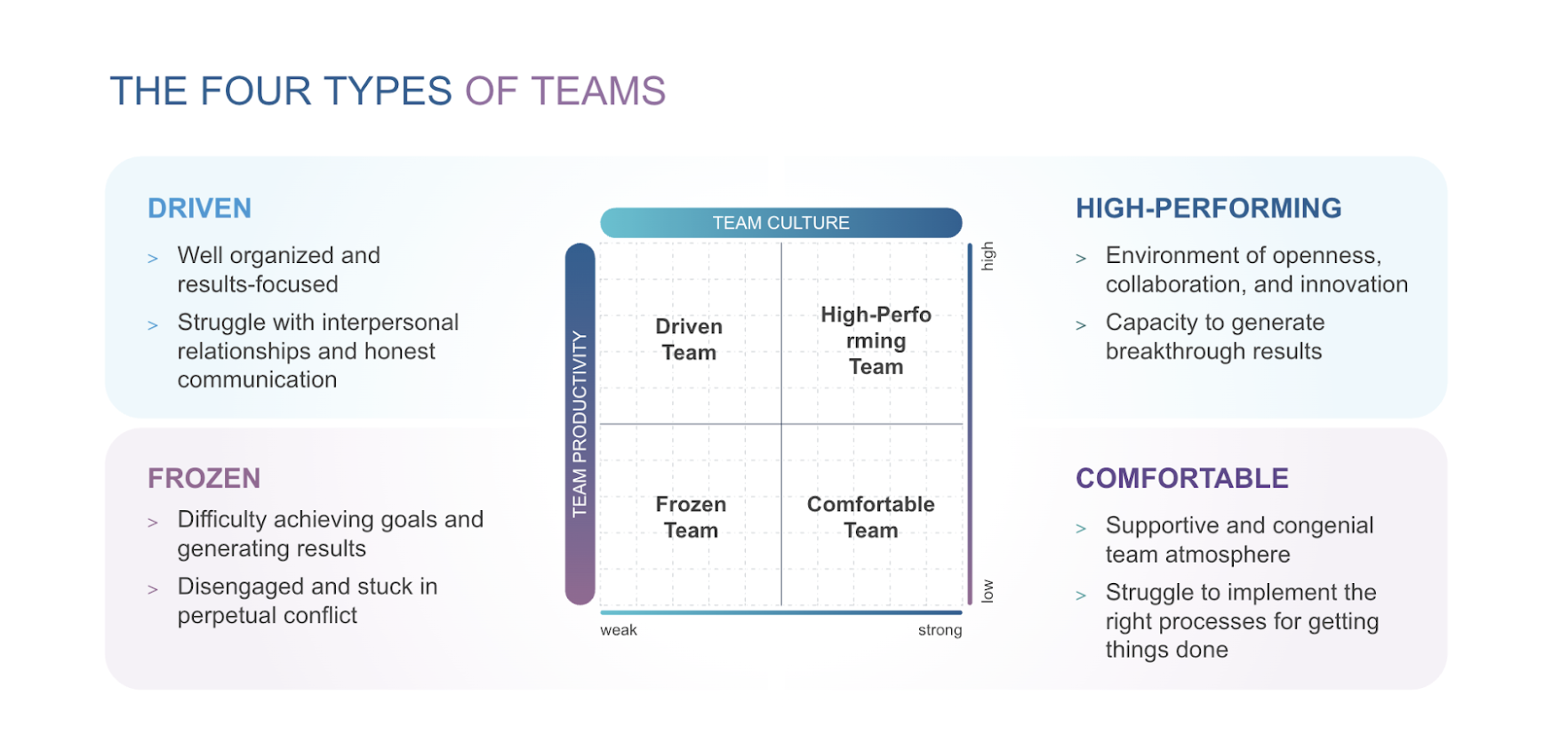The Hardest Conversation Every Leader Must Have
Oct 13, 2025
There comes a moment when you can’t avoid it any longer. Someone on your team isn’t meeting the mark, and the next move is yours.
You can choose to delay it, soften it, or finally say it out loud.
That moment is more than a test of skill. It’s a test of leadership maturity: how you balance truth and care, courage and clarity. And it’s one of the hardest things you’ll ever do as a leader.
The Cost of Avoidance
In my experience, most leaders delay difficult conversations for the right reasons. They care. They don’t want to crush morale or hurt someone who’s trying.
But empathy without honesty isn’t kindness. It’s confusing for everybody involved.
That’s because when we sidestep the truth, the cost compounds:
- The individual loses clarity and agency.
- The team absorbs tension and extra work.
- The organization slows down.
- And the leader quietly loses credibility.
Avoidance might feel merciful in the moment, but over time it breaks trust, which is the very foundation of strong teams.
The good news? Honesty and empathy aren’t opposites. They’re partners.
When you lead with both, people feel respected, informed, and supported. And that’s what allows cultures to truly thrive.
What Kind of Team Are You Leading?

(from AIIR’s Team Effectiveness Framework)
Every team lives somewhere on this spectrum:
- Frozen Teams are disengaged and conflict-heavy, struggling to make progress.
- Comfortable Teams value harmony but lack urgency and accountability.
- Driven Teams deliver results but fracture under stress or low trust.
- High-Performing Teams combine results and relationships, innovating through honest dialogue.
Even well-intentioned leaders can let their teams stay “comfortable” too long, mistaking peace for progress. But the bridge to becoming high-performing often begins with one uncomfortable, transparent conversation.
The Myth of “Performance” in Purpose-Driven Work
In mission-driven industries, such as education, nonprofits, or healthcare, I often hear leaders say, “We don’t use the word performance. It feels too corporate.”
But avoiding performance doesn’t protect your culture. It dilutes it.
It sends the message that care and accountability can’t coexist. And that’s simply not true.
In the healthiest organizations, performance and purpose are allies. When people know what’s expected, how they contribute, and where they stand, they feel secure and valued. That’s what drives engagement and growth.
In fact, Gallup research shows employees who clearly understand what’s expected of them are 2.5 times more likely to be engaged at work. That clarity isn’t cold. It’s what builds connection.
Leading with Empathy and Radical Transparency
Empathy connects us to the human behind the performance: the effort, the intent, the stress.
Radical transparency ensures we’re not trapped in wishful thinking. It lets truth become a tool for growth.
When you combine the two, conversations shift from punitive to developmental.
You might say: “I know how hard you’ve been working, and I also see that the role requires something different right now. I want to be honest about that so we can explore what’s possible, here or elsewhere.”
That one sentence holds both truth and dignity. It centers care without compromising clarity.
A Framework for the Hard Conversation
These conversations aren’t just about performance. They’re about the kind of leader you’re becoming. The goal isn’t to avoid tension; it’s to walk away knowing you led with courage and compassion.
Here’s the guidance I share most often with clients:
1. Prepare with clarity and compassion. Get specific. Focus on behaviors and outcomes, not personality. Write them down. Then check your own emotions because what you carry in will shape how it lands. When you show up clear and calm, people feel respected even when the message is hard.
2. Lead with honesty, not hope. Clarity is kindness. “This role requires consistent collaboration across departments. Right now, that’s not happening.” Then stop talking. Silence is your ally. Give the truth room to land.
3. Stay anchored in empathy. “I know this isn’t easy to hear. You bring a lot of heart to this work, and that matters.” Empathy doesn’t weaken accountability; it strengthens it. People open up when they feel seen.
4. Offer a path forward. If improvement is possible, co-design a plan with clear goals and timelines. If it’s not, guide them toward a space where their strengths can shine. “Let’s talk about what success looks like in an environment where your strengths can thrive.”
That’s not dismissal. It’s dignified leadership, the kind that values both truth and humanity.
How Coaching Builds the Courage Muscle
If you’ve been circling the same conversation, rewriting the email, rehearsing the script, or waiting for the “right time,” you’re not alone.
But it’s time for you to get unstuck. And that’s what coaching helps leaders do.
Through coaching, leaders learn to:
- Separate discomfort from avoidance.
- Use language that balances honesty and care.
- Stay grounded when emotions rise.
- Lead with steadiness, even in high-stakes moments.
Coaching doesn’t “fix” you. It expands your capacity to speak truth with empathy, to model composure under pressure, and to create the kind of culture where others can do the same.
That’s the real work of leadership: learning to be both clear and kind at the same time.
The Reframe: Letting Go as Growth
Helping someone recognize they may be better suited elsewhere isn’t failure. It’s an act of leadership generosity.
You’re saying: “I see your value. I believe in your potential. And I also see that this fit no longer serves either of us.”
That kind of honesty doesn’t fracture relationships; it strengthens them. Because when you lead with empathy and radical transparency, you create a culture where truth fuels growth, not fear.
Coaching helps you build that courage muscle so you can lead yourself, and your team, through growth instead of avoidance.
If you’re interested in learning more about leadership coaching and what you can expect, contact me to schedule a confidential conversation.
Denise Musselwhite is an unshakable optimist who believes in a future where leaders thrive authentically and courageously. She is dedicated to empowering diverse professionals to reclaim their power, harness their strengths, and break through the barriers—both systemic and self-imposed—that hold them back.
As a visionary executive coach, speaker, and strategist, Denise founded Tech & Thrive to bridge the gap between ambition and achievement, particularly for women and people of color in tech leadership. Her T.H.R.I.V.E. Operating System™ is more than a framework—it’s a movement designed to help leaders rise with clarity, confidence, and impact.
Denise’s mission is clear: to help high-achieving professionals show up fully as themselves, lead with purpose, and build careers and workplaces that honor their unique strengths, whether that’s through her leadership coaching or her partnerships with AIIR Consulting, Mission and Data, and Shore Coaching to deliver exceptional, data-informed leadership and team development rooted in authenticity. Because when we lead from a place of authenticity, we don’t just succeed—we thrive.

